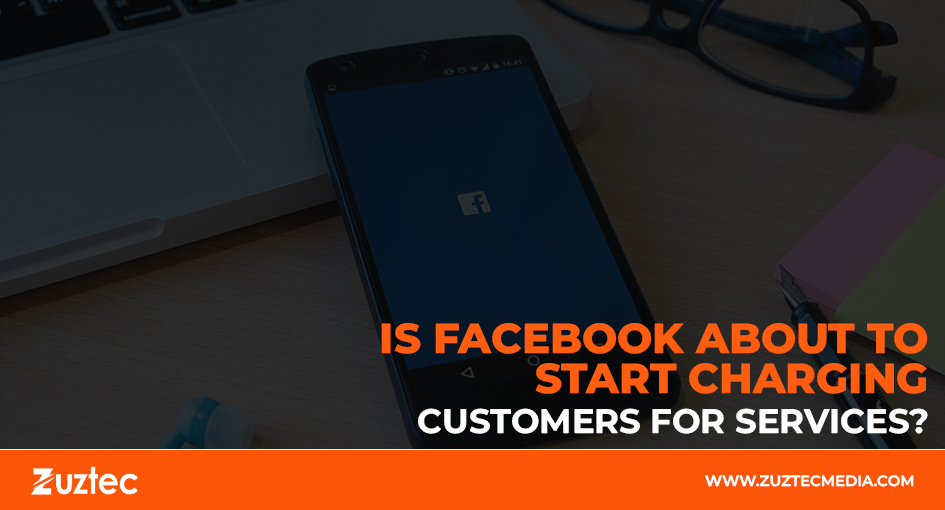
Is Facebook About to Start Charging Customers for Services?
As social media continues to evolve, questions surrounding monetization and user costs become increasingly relevant. A growing conversation has emerged around the topic, Is Facebook about to start charging users for services? While Facebook has long been a free platform, relying on advertising revenue to sustain its business model, recent developments suggest that the landscape may be shifting. The company has faced increased scrutiny over data privacy issues, advertising practices, and its role in spreading misinformation, prompting discussions about how it can generate revenue without compromising user trust.
Reports suggest potential subscription models or premium features with a price tag, raising concerns about user experience. Essential features may remain free, while a tiered system may require users to pay for certain tools and services.
The implications of such changes are vast, affecting not only individual users but also businesses and marketers who rely on Facebook for advertising and outreach. As we explore the question, Is Facebook about to start charging? It’s crucial to examine the motivations behind this potential shift and what it could mean for the future of social media. In a world increasingly driven by profit, the possibility of charging users raises important questions about value, access, and the essence of community in the digital age.
Is Facebook About to Start Charging Customers
Understanding the Landscape of Social Media Monetization
Social media giants like Facebook have thrived on advertising revenue, but changing market dynamics and user expectations are prompting a reevaluation of this model. As privacy concerns grow and competition for user attention intensifies, platforms are exploring alternative monetization strategies. The question is, is Facebook about to start charging for certain features or services? arises from a backdrop of industry trends, where other platforms like LinkedIn and Twitter have introduced premium subscription models to enhance the user experience while generating income.
Facebook’s recent announcements and product developments have fueled speculation. The company is testing features like enhanced analytics tools and exclusive content options, which could serve as a foundation for a subscription model. This has led to increased curiosity and concern among users about the future of their free access to the platform.
Potential Implications of Charging Users
If the answer to is Facebook about to start charging turns out to be affirmative, the implications could be substantial. Firstly, it could reshape the user experience. Many users enjoy Facebook for its free access to a plethora of features, from connecting with friends to engaging with communities. Charging users could alienate some, particularly those who cannot afford to pay for a platform that has historically been free.
Moreover, a shift towards a paid model could also affect how businesses utilize Facebook for marketing. Many small and medium-sized enterprises (SMEs) rely heavily on Facebook for advertising and brand promotion. If costs increase due to user charges or subscription fees for businesses, it could lead to reduced accessibility for those who depend on the platform for growth.
Another aspect to consider is the nature of the features that could potentially become paid services. Would basic functionalities, such as messaging, posting, and profile creation, remain free, while advanced features—such as targeted advertising tools, enhanced analytics, and exclusive content—require payment? If Facebook decides to implement a tiered service model, it may alienate users who cannot afford premium features, creating a divide between users based on their financial ability.
User Reactions and Sentiments
The query is, Is Facebook about to start charging? has sparked varied reactions among users. Some are skeptical and feel that the platform should remain free, as it has been for years. Others are more open to the idea, believing that if premium features provide significant value, then a subscription could be justified.
User sentiment towards this potential shift largely depends on how Facebook communicates any changes. Transparency will be crucial. If Facebook can clearly outline the benefits and additional features that a paid model would provide, users might be more accepting of the transition. Conversely, any sudden or poorly communicated changes could lead to backlash and increased user attrition.
In conclusion, as the digital landscape continues to evolve, the question of is Facebook about to start charging users for services remains at the forefront of discussions among users and analysts alike. While Facebook has yet to confirm any plans for monetization through user charges, the rising costs of running a platform, combined with the need to enhance privacy and user experience, suggest that the company may explore various avenues for generating revenue.
Ultimately, whether or not Facebook decides to charge users will significantly impact its vast user base and the broader social media landscape. For now, the future remains uncertain, but one thing is clear: as user expectations change and competition grows, platforms must adapt, and how they navigate this shift will define their success in the coming years. If Facebook opts to implement any changes, it will need to do so thoughtfully to maintain the trust and loyalty of its users, ensuring that it continues to be a vital part of the social media ecosystem.

